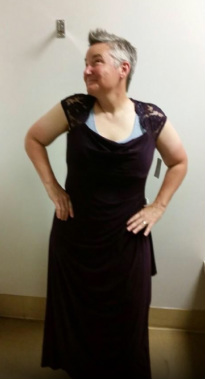 In the queer community, we talk a lot about "gender dysphoria," often when talking about various trans identities. For example, a pre-op trans man might look at his breasts and think, "I'm a man! These don't belong on me!" But I've heard the word "dysphoria" used in many other ways, and I've gotten a ton of questions from readers about it: Can a butch feel dysphoria if she's forced to wear a dress? Can a heterosexual person feel dysphoria if she's dating someone of the same sex? Are trans people the only ones who experience dysphoria? Are they the only ones who experience "gender dysphoria?" The American Heritage dictionary on my shelf at work doesn't even include the word "dysphoria" [what???]. But the dictionary on my computer defines it as: a state of unease of generalized dissatisfaction with life. The opposite of euphoria. I think of "euphoria" as a state of extreme joy. So dysphoria is a state of extreme non-joy? I think the key is "unease." A dysphoric feeling is a feeling that something is not quite right--that it's not aligning how it's "supposed" to. Gender dysphoria is a more specific. WebMD says that it's a: condition in which a male or female feels a strong identification with the opposite sex. Not conforming to the social features related to one's biological gender is not in itself a disorder. Rather, a person with gender dysphoria experiences great discomfort regarding his or her actual anatomic gender. And while WebMD has its flaws, everything I searched in academic and professional medical journals says about the same thing. So under that definition, when my butch buddy C (pictured right) donned a gown for the Ada Initiative (the sports bra peeking out is a nice touch, don't you think?), she was experiencing some kind of, like, wardrobe dysphoria--as in, help! this doesn't belong in my closet!--but not actual gender dysphoria? That's how I understand it. Yet, there's something about her discomfort that is decidedly related to her gender. I mean, I'd experience some kind of fashion-related unease if I was forced to wear Crocs with a suit (or, TBH, Crocs with anything). But it's different kind of "this isn't right on me." And that something has to do with gender presentation. This makes sense if you don't think of gender as an either-or phenomenon. C associates her lovely purple dress (heehee... I chuckle every time I look at that picture) with femaleness, and identifies herself as female. But as a different kind of female. One who doesn't wear a dress. And while it's certainly not the same as the gender dysphoria a trans person experiences, it has at least a few elements of similarity, doesn't it? Does it make more sense to think of this as a kind of "gender dysphoria" if we think of "butch" as a gender? I feel like doing this still minimizes the distinct gender dysphoria felt by trans individuals, though. I don't know anything about dysphoria as a medical phenomenon, but I do know something about social psychology, and there's a related phenomenon in social psychology called "cognitive dissonance," which is the mental stress or discomfort experienced by a person who has two contradictory ideas/experiences happening at once. Like, suppose you think littering is morally irresponsible, yet when you ate lunch outside yesterday and your napkin blew away, you didn't go pick it up. This is so hard for the brain to deal with that we invent little ways to make things compatible (e.g., "it's just a napkin," or "there's trash pick-up around here every afternoon"). Is that just dissonance? Or is it also a kind of dysphoria? To me, it doesn't have the "unease" that I associate with dysphoria. I don't see gender as a "spectrum;" I see it as a field with lots of different spaces in it: overlapping, related to each other, messy, contradictory. Some people might be comfortable standing in only one place on the field. Others might be comfortable in a whole lot of places. If I only like to hang out in the "butch" spot, and I'm wearing a dress, which I see as non-butch, and I feel uncomfortable as a result of this misalignment, what is it, precisely, that I am feeling? I don't think it's gender dysphoria, exactly, but I think it's some very specific type of gender-related discomfort or dissonance. And for me, at least, it's a similar feeling as if someone calls me "sir." I think: nope, you didn't get me right. You're not seeing me as I want to be seen. I want to be seen as female, but as a certain kind of female. A non-"deviant," but specific genre of female--which, sure, incorporates a lot of elements society considers "masculine." I bet I have a lot of readers of all different identities who want to weigh in on this one. I'll be super interested to read your comments.
23 Comments
OMG. I just got word that I didn't get a job I really, really wanted because the boss-to-be thought that I would be "too much of a leader" and insufficiently deferential. Problems with this assessment include:
I've been thinking about this quite a bit since I heard it earlier today. After some reflection, I told my "inside source" that I think the problem might have had partly to do with gender. That is, women are expected to act in a certain way. By showing up in a women's suit, etc., I made it look like I was trying to "do femininity," but that I was doing it wrong. If this is true--and my inside source (herself an incredibly smart, assertive, feminine woman) thinks it might be--then the solution might be to make it clear that I am not attempting to "do" femininity at all. Maybe if I wear a men's suit and even a tie, it will be clear that I am trying to "do" masculinity. In truth, I am not trying to "do" anything but be the best possible version of myself. But I wonder if, subconsciously, my would-be boss (though extremely progressive) understood me as a woman, judging me by implicitly comparing me to other women. If I wore guys' clothes, I would be putting myself more firmly in the "masculine" category. Not that I would be judged as a man, but rather that I might be judged more by a masculine standard, meaning that my apparent lack of deference(!) would be judged compared to men, not to women, and thus looked upon more favorably, since assertiveness is a quality more valued in men. Either way, depressing. 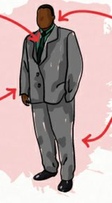 Last week, I returned to the age-old question of what butches should wear to interviews. In a short poll, I posed the following hypothetical: Imagine helping a butch lesbian decide what to wear for an entry-level professional interview (e.g., lawyer, consultant, finance, manager, gov't, professor, etc.). She usually wears men's clothes, but identifies and presents as female, though people sometimes accidentally call her "sir." She tells you, "I know the employers are kind of conservative, though I also know things are slowly changing. I'm a solid candidate but not a shoe-in. What should I wear?  Julie Goldman, rocking #4 Julie Goldman, rocking #4 I gave six choices and asked how to advise our butch professional wannabe: #1: Fit in first, THEN change the system. Wear what other women there wear: makeup, heels, whatever you have to. #2: Be yourself, but show you're willing to play the game. Wear only the women's stuff you're most comfortable in--skip the makeup and heels! #3: Wear a combo to help you fit in a little--e.g., a plain women's suit, collared shirt, men's shoes. #4: You like men's clothes; wear a men's suit and shirt and shoes, but no tie or other uber-masculine gear that'd alienate you from your interviewers. #5: Men's clothes, including a tie. If they don't want you, you don't want to work there. If you can't get a job in the industry, it's not for you! #6: As long as you wear something nice, clean, etc., it doesn't matter. People judge you for who you are, not what you wear. Here are the results: As you can see, I also calculated the average age for each response. For a small survey, these age differences don't matter much, and goodness knows this isn't anything close to a representative sample (of the population overall, of butches, or even of BW readers), but it's interesting to think about. A few numbers that caught my eye, and possible explanations:
And finally, here's a sampling of the write-in comments: Thanks for these great thoughts. If you're trying to figure out how to break into the profession you want without compromising who you are, you are certainly not alone. A few weeks ago I wrote this article recounting my pseudo-gender-conforming job search. Shortly thereafter, a butch superstar six or seven years ahead of me in my field reached out about the article, and we ended up having coffee and chatting about her experiences. Not only was she even more awesome than I’d hoped, but she had interesting theories about butch clothing selection that are way too interesting not to share.
Said superstar proposed the following:
The bottom line is that Superstar says to go for a men's suit next time—at least, it worked for her. So maybe I will. Or maybe I'll go back and forth, since I like both men's and women's suits that are relatively gender-neutral in appearance (e.g., no cutesy buttons for women's suits, no mega-structured shoulders for men's suits). But I do like wearing ties, which tend to look better with men's suits. Superstar had no major opinion on ties, since she doesn't wear them herself, but since they are THE quintessential "men's" professional clothing item, maybe a tie would be more likely to be looked on unfavorably by prospective hirers. What do you think about Superstar’s theories? Let's unscientifically test one of them! Click here to take a SUPER-quick 2-question quiz. I'll post the results this weekend. 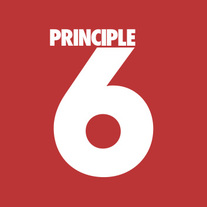 I love sports (almost) as much as the next dyke, but I have awfully mixed feelings about the Olympics this year. Russia's LGBT community is under constant, hateful, and often violent siege from its government. Gay "propaganda"--defined as anything depicting LGBTQ relationships in a positive or neutral light in a form accessible to minors--is illegal. This includes, as you can imagine, such "propaganda" as holding hands with your partner, wearing a T-shirt with a pink triangle on it, or even just being queer parents. Just a few weeks ago, the Russian government fined the editor of a newspaper who published an interview with a gay teacher. An interview, people. In a newspaper. Gay people in Russia are regularly bullied, chased, beaten up, and subjected to all kinds of hateful acts. In a way, maybe it's good that the Olympics are being held in Russia this year, since it will draw attention to the human rights violations that go on in Russia every day. Principle 6 is the Olympic principle that forbids discrimination on the basis of politics, race, religion, gender, or otherwise--a principle decidedly not embraced in Russia. The Principle 6 campaign is designed to raise awareness of the way LGBTQ people are treated in Russia and "and underscore that Russia's anti-LGBT discrimination is incompatible with the Olympic movement." I urge you to take the Principle 6 logo and make it your Facebook or Twitter image. I guarantee that people will ask you about it, which will give you more chances to spread the word. 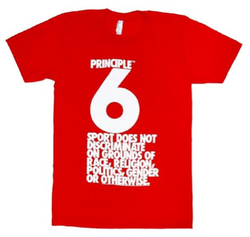 And if you're a schwag-lover like me, you'll be happy to know that American Apparel has designed a very cool "Principle 6" clothing line, and it's money well-spent, since proceeds will support LGBTQ groups in Russia. I hope you'll spread the word, and help LGBTQ folks in Russia imagine a better world. |
|
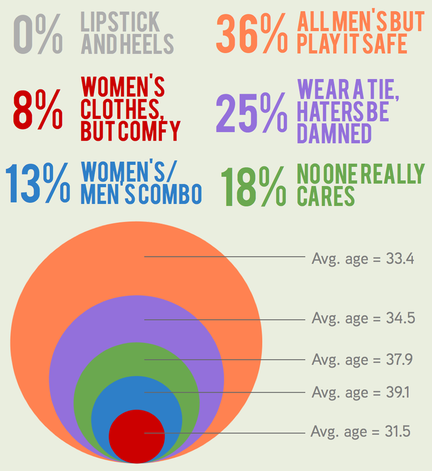
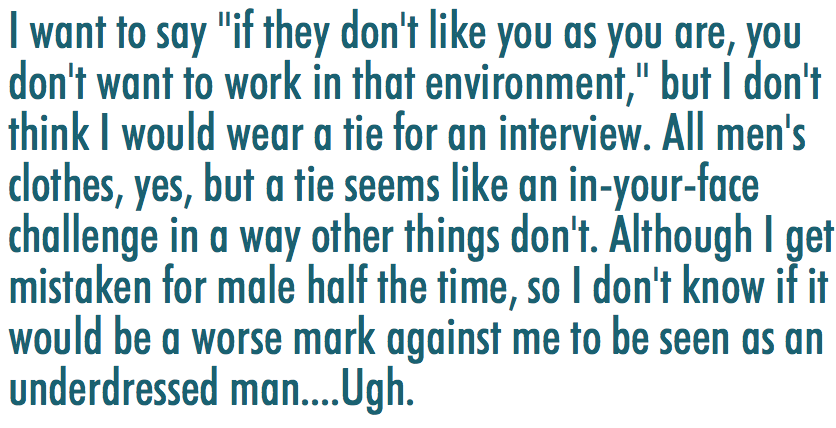
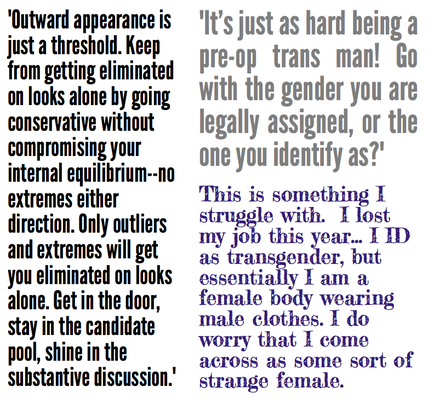
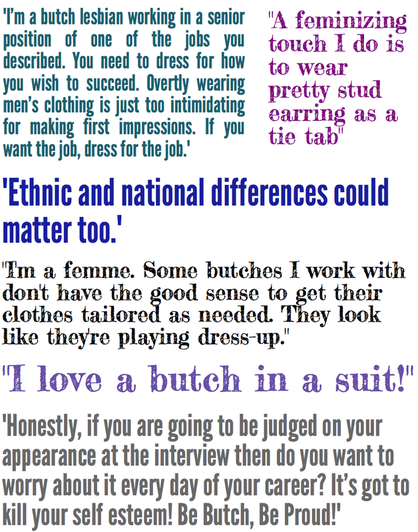

 RSS Feed
RSS Feed